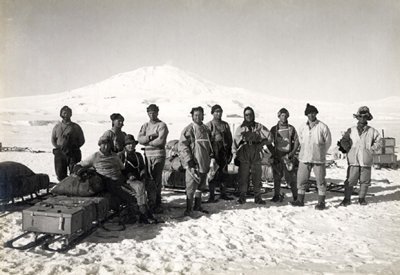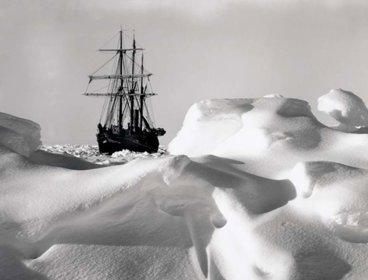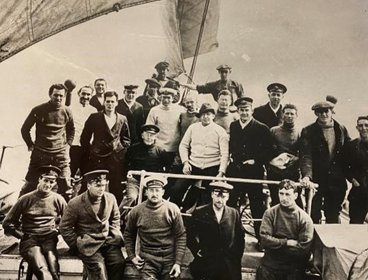Antarctica is the coldest continent - Russia's Vostok Station recorded the world's coldest temperature of -89°C in 1983. It is also the driest continent with an average annual snowfall of 125mm. It has no permanent inhabitants and it is the most isolated continent.
It is of immense value to scientists for the study of climate change as it has an important effect on the world's climate and ocean systems.
It was the geographers of ancient Greece who first suggested that there was a large landmass around the South Pole. They named it Anti-Arkitos meaning the opposite of the Arctic.
In 1895, the International Geographical Congress claimed 'the exploration of the Antarctic region is the greatest piece of geographical exploration still to be undertaken' and the 'heroic' age of Antarctic discovery began.
Key questions
Discover the story of the race to the Pole
What were their views of Antarctica?
What is the climate and landscape like?
How has Antarctica been used for science?
How has Antarctica been used for commercial profit?
Which countries have signed up to the Antarctic Treaty system?
Factsheets
These factsheets provide background information to each of the key questions. They can be used together with the associated downloadable activities to investigate each area.
Downloadable activities
The downloadable activities used with the associated factsheets can be used in the classroom to investigate each area.
The Society's exhibition With Scott to the Pole shows poignant photographs by Herbert Ponting charting the expedition crew whilst they researched this majestic landscape, its wildlife, and made preparations for Captain Scott’s doomed journey to the South Pole in 1912. This exhibition is also available to hire.
Links
-
British Antarctic Survey: the British Antarctic Survey (BAS) is based in Cambridge, England. It has, for almost 60 years, undertaken the majority of Britain's scientific research on and around the Antarctic continent. Lots of scientific information, diaries by research scientists living and working in Antarctica and a gallery.
-
Discovering Antarctica: the RGS-IBG's website with interactive activities and a range of resources.
-
Classroom Antarctica: from the Australian Antarctic Division. Eight units including The Big White, Exploration, Community, On Thin Ice, Southern Life, Deep Freeze, International and Environment. Lots of resources for students and teachers.
-
Endurance and Shackleton resources: resources for teachers and students on the Antarctic Expedition 1914-1917 from the American Public Broadcasting Service.
-
RGS-IBG Picture Library: browse the Society's picture library to buy prints from the Endurance expedition.
-
Scott Polar Research Institute: this site is very detailed and comprehensive, and even has versions of its homepage in eight languages other than English. SPRILIB, a searchable database and a Picture Library Database. The Index to Antarctic Expeditions with links, summaries and related literature is also useful.
This theme was written with support from Margaret Cummins, Moulsham High School, Kim Stephenson and Pat Wilson.





